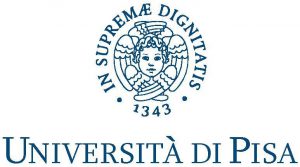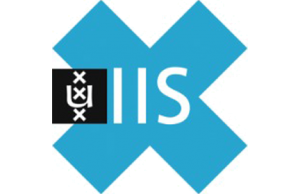The scientific research Fair-Fusion is developing continues thanks to the work of the people of these partners. As an independent organization, we see it as our duty in maintaining a healthy relationship by sharing knowledge, insights, and facilities. We would like to emphasize that the list of partners is not exhaustive and semi-randomly ordered.

MaterialsFactory in Eindhoven is our main partner. Fair-Fusion moved in 2025 to Eindhoven to become their neighbours. We engage with MaterialsFactory for the development of our PolyBiotics technology. In addition, we share equipment and know-how on a daily basis.
We are grateful to have Saxion as our partner in the fields of chemistry, biology, and nanotechnology. Some of our research would simply not have been possible without their efforts and facilities. Increasingly Saxion and Fair-Fusion are entering projects to explore opportunities such as the DaVinci project. We would like to remind students that they can apply for an internship.
 The University of Pisa is one of our esteemed partners in education and research. Their technical aid has proven important on several occasions. We welcome students from the university from the fields of biochemistry, biotechnology, chemistry, and nano-technology.
The University of Pisa is one of our esteemed partners in education and research. Their technical aid has proven important on several occasions. We welcome students from the university from the fields of biochemistry, biotechnology, chemistry, and nano-technology.
As of 2021 we would like to welcome students from the ‘Alma Mater Studiorum – Università di Bologna‘ for internships. Applications can be made in biotechnology, engineering, physics, political sciences, anthropology, philosophy, and sociology. Please refer to the university’s internship platform for more details.
Are you not on the list as a partner? Please, send us an e-mail, and will kindly reply to why we have not listed your organization.
Recommended organizations
Although legal terms do not link these organizations to Fair-Fusion we definitively recommend knowing about them.

The Institute of Interdisciplinary Studies (IIS) is part of the University of Amsterdam. Due to personal experience, the bachelors course of Future Planet Studies is highly recommended as it is among the few who take the importance of multidisciplinary education to the next level. The course in Dutch and starts with the very foundations of science in subjects like ‘Quality of life’ and ‘Philosophy of the science’. By developing a specialization in the second year (called a major) provides you with a very unique spectrum of knowledge and understanding in two axis: on the x-axis from some knowledge concerning various disciplines to the complete appreciation of your major; Secondly, on the y-axis fundamental understanding of scientific principles and at the other end a holistic view of the parts scientist play within a system.
So why would you choose it? Perhaps because you feel the need to learn how to address global issues related to sustainability. Maybe because you are up to the challenge to address complexity upon complexity upon complexity etc…. or maybe because choosing one discipline was just not cutting the deal. Still interested? Please, visit the official web page of the University of Amsterdam and find out more
This page was last updated on

